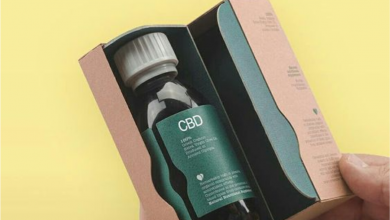What Is CBD?

If you are wondering what is CBD, you’re not alone. Many people are also confused by the terms CBD oil and CBD capsules. Let’s break down what these products are and why you might want to consider them for yourself. CBD is a type of phytocannabinol derived from the hemp plant. It is a highly potent substance. When taken orally, CBD can help you overcome your chronic pain conditions, from headaches to arthritis.
Cannabidiol
Cannabidiol is the main nonpsychoactive component of Cannabis sativa, a plant widely used as a remedy for a range of ailments. In the nineteenth century, western medical practitioners began using medicinal preparations derived from C. sativa as analgesics. Clinical evidence suggests that it can be effective in treating neuropathic pain, including that caused by HIV, as well as spasms in patients with multiple sclerosis.
Cannabidiol oil
While CBD oil is produced from the same plant as marijuana, it differs significantly from THC, which is a psychoactive compound found in cannabis. While both oils contain the same amount of CBD, they have distinct advantages. CBD oil contains a high amount of CBD, whereas THC has low concentrations. For these reasons, people who suffer from certain illnesses may find that CBD oil is a good option for relieving their symptoms.
CBD capsules
Choosing the best CBD capsules is not difficult if you know a few things about this product. The best CBD pills combine full-spectrum hemp extract with organic hempseed oil. The company offers dated test results on each batch. It is also certified by the U.S. Hemp Authority and follows good manufacturing practices for the food and drug administration. Most of its products are made from U.S.-grown hemp, although the Signature line contains Canadian hemp.
Epidiolex
In one study published in the New England Journal of Medicine, Epidiolex CBD reduced total seizures and nonconvulsive seizures in patients with drug-resistant epilepsy associated with Dravet syndrome. This new treatment may soon be available in the US. GW Pharmaceuticals, a UK-based company, plans to expand its reach by seeking payer coverage for the drug. The company estimates that the price of Epidiolex will be approximately $32,500 per year. This amount is higher than other CBD products, but it will be comparable to competitor drugs.
Cannabidiol for epilepsy
Cannabidiol, a constituent of hemp, has promising therapeutic potential for the treatment of epilepsy. It reduces the frequency and severity of seizures and improves safety. In a Phase II study, cannabidiol was shown to increase levels of the rapamycin inhibitor mechanistic target of phosphodiesterase-5. This drug is also safe, with efficacy maintained throughout the study.
Cannabidiol for diabetes
In a study published in the American Journal of Pathology, CBD reduced the development of diabetic retinopathy, chronic inflammation, and blood-retinal barrier breakdown in animals. Diabetic retinopathy affects the blood vessels in the retina, and if left untreated, can cause blindness. Both neurotoxicity and neuroinflammation are a result of high blood glucose levels, and untreated, can lead to Alzheimer’s disease.
Cannabidiol for acne
The effectiveness of CBD for acne is still being studied, but research is starting to point to this herb as a potential treatment for acne. The anti-inflammatory properties of CBD are mediated through nonclassical cannabinoid pathways. CBD inhibits the proliferation and growth of human sebocyte cells, preventing their fat production. In contrast, the anti-inflammatory effects of Vitamin A products only affect the viability of the cells. This suggests that the effect of CBD on acne could be much more powerful.



